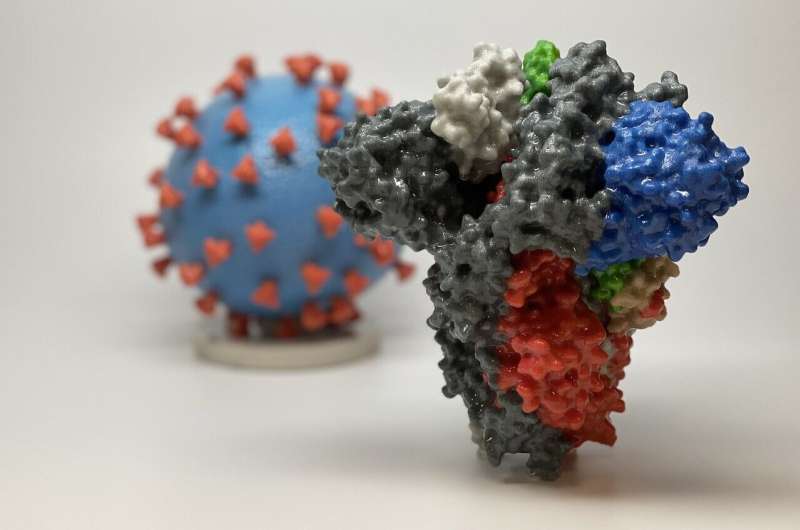New COVID-19 related genes—helpful and harmful—found in massive screen

Researchers at Yale University and the Broad Institute of MIT and Harvard screened hundreds of millions of cells exposed to the COVID-19 and MERS viruses and identified dozens of genes that both enable the viruses to replicate in cells and also those that seem to slam the door on the virus.
The pro-viral and anti-viral role of these genes will help guide scientists in development of new therapies to combat COVID-19, the researchers say.
The findings were reported Oct. 26 in the journal Cell.
Scientists have previously identified how the SARS-CoV-2 coronovirus, which causes COVID-19, attaches to and invades cells, but less is known about why some cells are more susceptible to infection. Understanding the genetics behind the host cells' susceptibility to infection may help explain why some people exposed to the virus experience few or no symptoms and others become extremely ill or die.
For the study, researchers performed a genome-wide screen of a line of green monkey cells, which are more likely to die after exposure to SARS-CoV-2 than commonly used human cell lines. The screens for the first time allowed researchers to simultaneously track interactions of virus and cells. The screens confirmed earlier findings that the ACE-2 gene, which encodes a receptor on the cell surface, promotes infection by SARS-CoV-2.
However, the screens also identified two new pro-viral protein complexes and a third, which seems to assist in preventing infection. They found that SWI/SNF complex, which turns genes on and off, and HMGB1, which has a myriad of functions including regulation of inflammation, were linked to increased cell death after infection.
The researchers then introduced small molecule drugs that inhibit function of two of the identified gene products and found they could increase survival of cells after infection in a dish.
By contrast, the histone H3 complex, which helps regulate expression of genes within the cell nucleus, seemed to provide a protective effect, inhibiting ability of SARS-CoV-2 to infect and kill cells.
"It is very important to understand wide variation of responses to COVID-19, for instance why advanced age makes it much more likely that people will die," said Yale's Craig Wilen, assistant professor in laboratory medicine and immunobiology and corresponding author of the paper. "We have identified both proviral and antiviral genes that may help us predict who is likely to get severely ill and what kind of drugs would be helpful or detrimental in treating patients."
Wilen noted the information may not only be helpful in current pandemic, but also help prepare for outbreaks of future emerging coronaviruses.
More information: Jin Wei et al, Genome-wide CRISPR screens reveal host factors critical for SARS-CoV-2 infection, Cell (2020). DOI: 10.1016/j.cell.2020.10.028





















